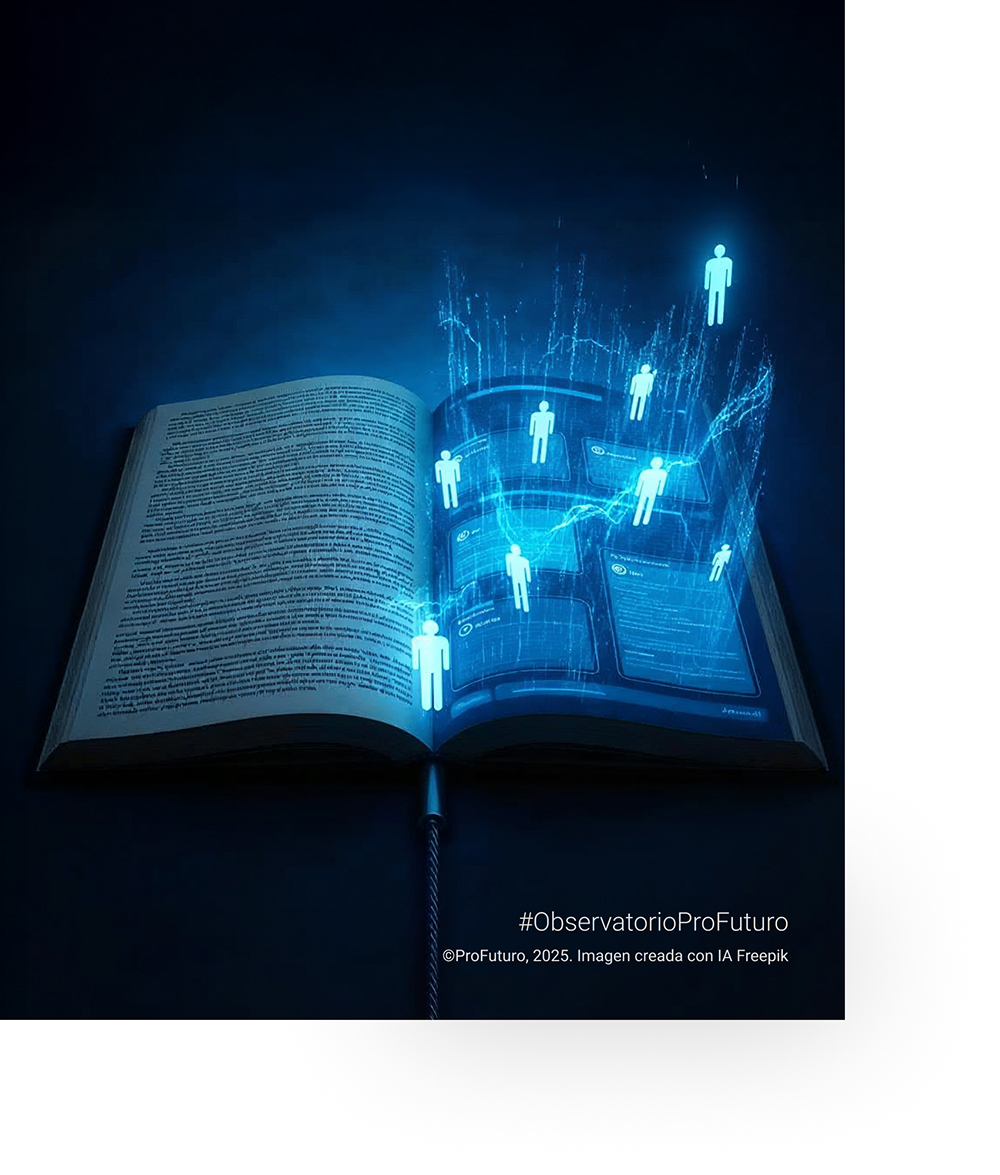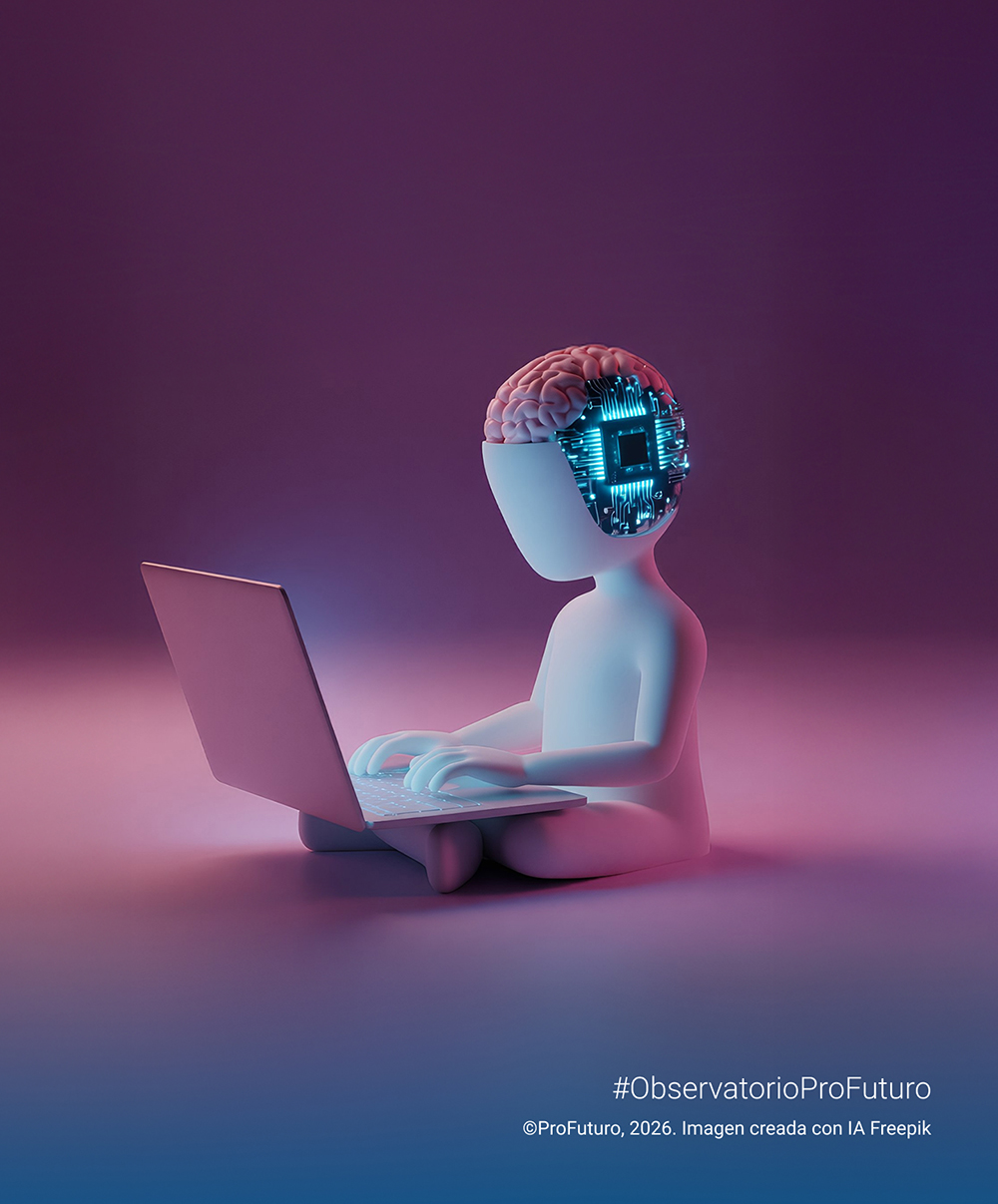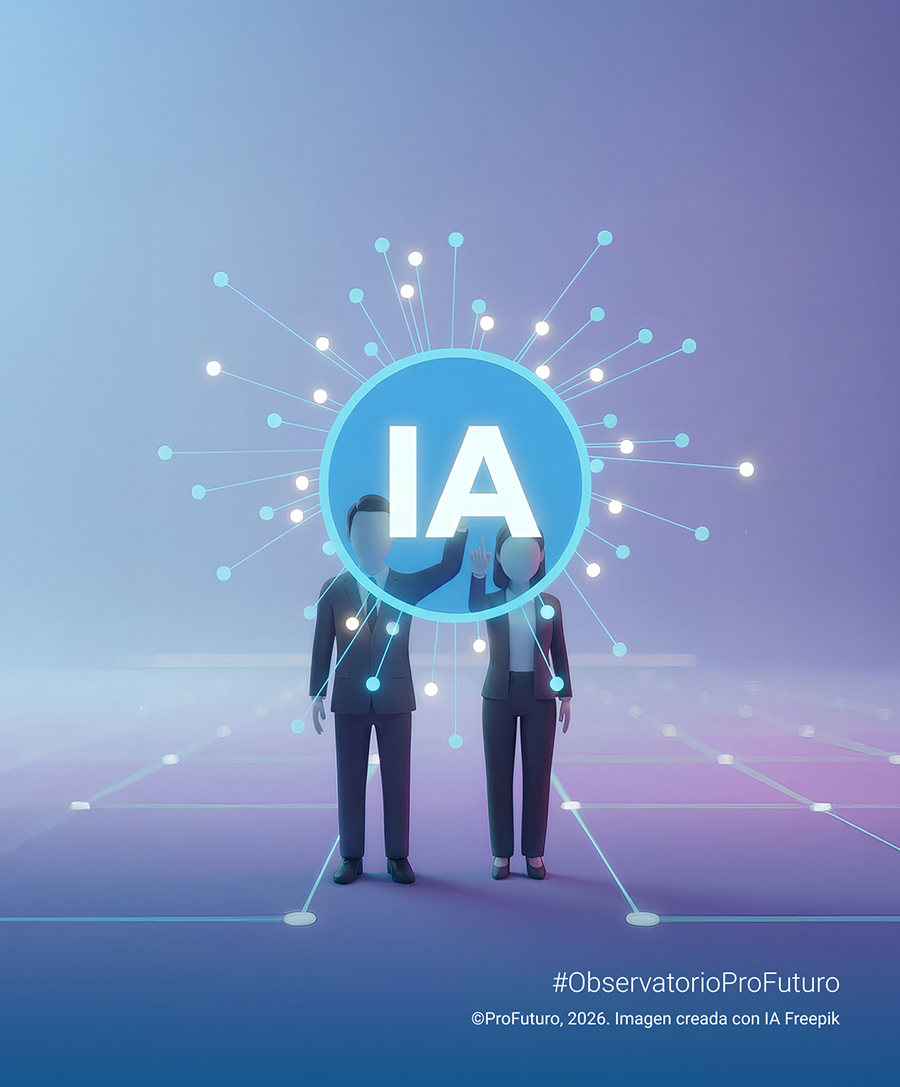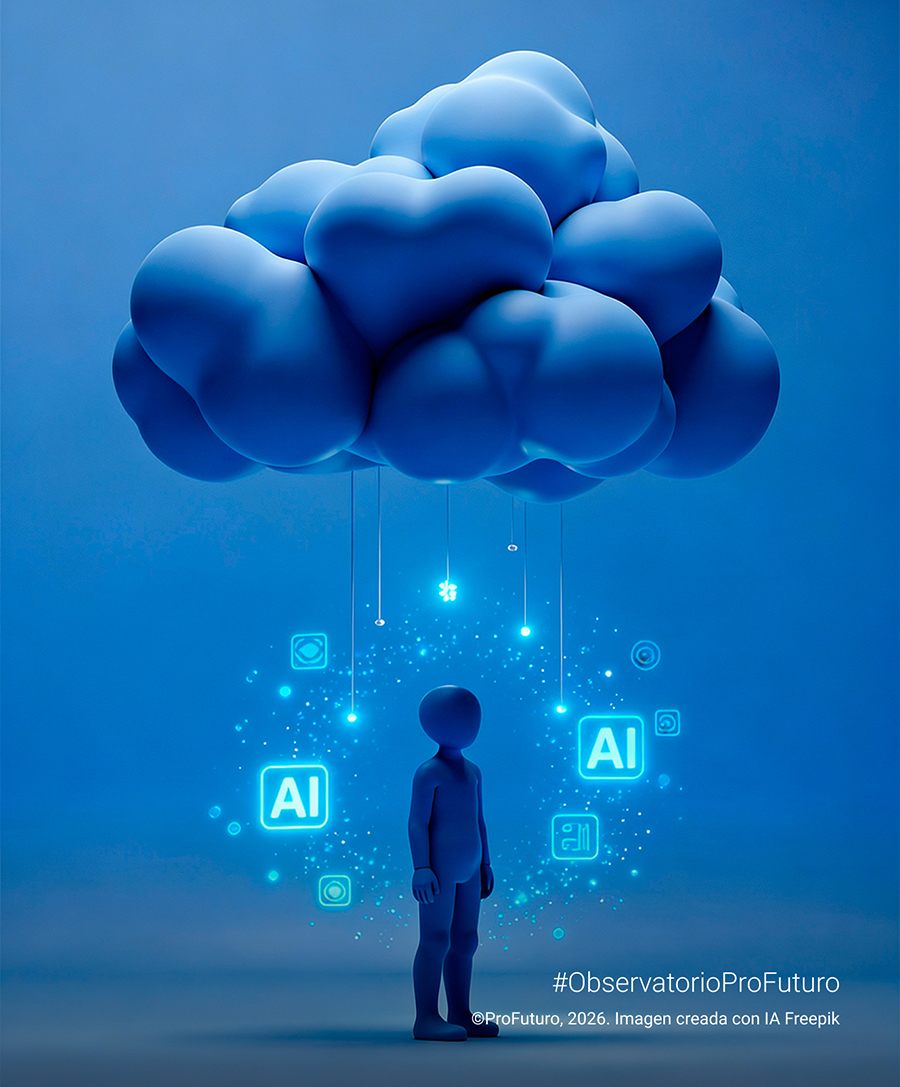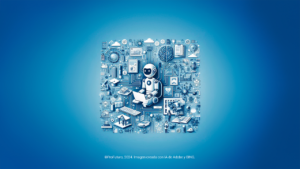
If artificial intelligence knows everything, why should we learn? The question sounds like something from a casual chat, but it hides one of the great dilemmas of our time. Charles Fadel, educator and researcher, addresses it in his book Education for the Age of Artificial Intelligence. Founder of the Center for Curriculum Redesign, Fadel does not side with the apocalyptic nor with the worshippers of the algorithm. Instead, he proposes a rigorous framework for educating citizens who remain human in a world increasingly governed by machines.
This is no simple task. While AI is already permeating all aspects of our society—work, relationships, knowledge itself—the education system seems stuck in the last century. Often, not even in its brightest moments. Fadel’s book raises an uncomfortable question: what should we teach today so that tomorrow’s students are not mere cogs in an algorithmic machine? And it suggests a possible answer: teach them to think, to discern and, above all, to maintain a sense of purpose.
Why it is urgent to rethink education in the age of AI
A decade ago, artificial intelligence was confined to computer labs. Today it manages traffic, selects the news we read, writes more than decent texts and is beginning to replace job profiles we thought immune to automation. Everyone wonders what will happen to the economy. Fadel raises a perhaps more uncomfortable question: what will happen to education?
It’s not only the job market that is changing: the way we think, learn and interact is also shifting. That’s why, Fadel argues, it’s not enough to ask what to teach. We must also consider how to teach. And why.
In this context, schools risk becoming fossils—unless they dare to change. And to change in earnest. It’s not a matter of putting a couple of tablets in the classroom or teaching five-year-olds to code in Python. The change must be deeper: teaching students to coexist with AI, to use it critically and to preserve human judgement.
Fadel highlights another essential point: in an uncertain world, students need emotional stability—something technology will not provide. Schools must offer not only knowledge but also a sense of belonging, a reference space. As the author writes: “We cannot keep teaching everything that was taught before while also adding all the new demands.” Something will have to give. And it’s better for old methods to yield, not the humanity of learning.
Four-dimensional education
Fadel proposes a four-dimensional structure, developed more than a decade ago at his Center for Curriculum Redesign (CCR), now more relevant than ever. The framework is simple but not simplistic: knowledge, skills, attitudes and meta-learning. Four pillars supporting comprehensive learning. It’s not just about knowing things—though that remains essential—but also about developing the ability to do, to be, and to keep learning. Especially in a world where knowledge is constantly updated and certainties last less than a trending topic.
Knowledge still matters, of course. But it should be combined with skills such as critical thinking, creativity and communication. And with attitudes like curiosity, perseverance and empathy. And with something we often forget: meta-learning, the ability to understand how and why we learn. Because learning is not an automatic process—for humans or machines.
To this framework, Fadel adds less tangible but crucial factors: motivation, identity, agency and purpose. Without them, learning becomes an empty obstacle course. With them, it can be a process of personal transformation. AI tempts us to delegate—to let the machine think. But without motivation, identity and the ability to act meaningfully, the student will become a passive consumer of content generated by others.
The 4D structure offers a practical framework for redesigning curricula and teaching methods. Education for the Age of Artificial Intelligence updates and strengthens this model, providing concrete ways to apply it. Because one thing is clear: the old encyclopaedic curriculum is no longer enough to prepare students for the 21st century. Let alone to prepare citizens who do not wish to become mere parts of an algorithmic system.
What is AI really—and what is its impact on education?
An oracle to some, a harbinger of human extinction to others, Fadel approaches AI with a more reasoned, pragmatic view.
First, we must clarify what we’re talking about. The AI that surrounds us today—that writes texts, recommends TV shows or filters CVs—is not general intelligence but what Fadel calls capable AI (ACI). An intermediate category that performs well in specific tasks but is far from the dreamed (or feared) superintelligence. Current models—including ChatGPT—do not think or understand as we do. They process. And sometimes they do it very well.
Fadel uses a vivid metaphor: AI is an exoskeleton for the mind. It’s not here to replace us but to expand what we can do. Of course, to use an exoskeleton well, one must have something inside their head. Hence, education’s role is now, more than ever, to prepare students to collaborate with AI—not to delegate thinking to it.
The risk is twofold. On one hand, those unable to navigate this new environment will be marginalised. On the other, those who blindly embrace algorithmic automation will lose essential human capacities. The book states clearly: students who learn to work with AI will have an advantage; those who ignore it—or worse, trust it blindly—will pay the price.
In the workplace, complementarity between humans and AI is the most likely scenario. Jobs won’t disappear en masse, but they will fundamentally change. Education must anticipate this shift. It is not enough to train for yesterday’s skills. We must teach students to navigate a hybrid environment where machines will do much—but not everything. And where the difference will lie in capabilities that AI cannot replicate: creativity, critical thinking, emotional intelligence.
Here, Fadel offers a timely reminder. In an age of information overload—and digital manipulation—the critical function of education is more vital than ever. It’s not about competing with AI. Nor about surrendering to it. It’s about training citizens to coexist with this technology, to leverage its benefits and resist its traps.
No small task—especially in a context where technological fascination risks overwhelming everything. If AI becomes the ultimate arbiter of what we know and think, education will have failed in its most basic mission.
Wisdom as a lasting goal of education
Talking about wisdom in a book on AI might sound facetious: educating wise people in a world where speed matters more than depth, and algorithms compete for our attention with flashy headlines? Yet Fadel insists—and rightly so.
The book argues that wisdom should be the ultimate goal of education. It is not enough to prepare students for employment—not even for future jobs—or to provide them with technical skills. What we need is to educate individuals capable of understanding the world’s complexity, discerning what matters, and acting with purpose and ethics.
Fadel and his team define wisdom as a dynamic articulation of knowledge, skills, attitudes and meta-learning. It is not a romantic addition to the curriculum: it is the core of what education should be. Learning to handle information is necessary but not sufficient. What matters is knowing how to contextualise it, question it, interpret it. And, when necessary, to say no.
The author is clear: “Wisdom is not an ethereal concept: it becomes very real when properly nurtured.” It is nourished, among other things, by critical thinking, ethical reflection, empathy and lifelong learning. Virtues that AI lacks and often fails to promote.
The book warns of a risk we often overlook. Excessive reliance on automated systems—so convenient, so effective—can erode our judgement. If we let machines decide for us, we risk losing not only the ability to decide but also the understanding of why we decide as we do.
That is why Fadel calls for education not to abandon its humanist dimension. Schools must not become training centres for algorithm operators. Their mission is to educate wise citizens—people capable of discernment, of acting judiciously and of resisting—when necessary—the impersonal logic of AI.
In a world of ever-smarter machines, human wisdom will be more valuable than ever. Or it will simply be all we have left.
AI is an exoskeleton for the mind. It’s not here to replace us but to expand what we can do. Of course, to use an exoskeleton well, one must have something inside their head.
So, what should we teach?
Few topics are as tempting as this: “If artificial intelligence can know everything, why should we learn?” This question circulates through universities, conferences and LinkedIn forums with the lightness typical of dangerous ideas. Fadel takes it seriously—but does not fall for it. His book offers a clear answer: yes, we must continue to learn. But intelligently.
First, it’s important to clarify that AI does not know everything, nor can it understand the world as a human does. It processes data, recognises patterns, generates plausible responses. It does not think. It does not feel. It has no moral context. Instant access to information is not remotely equivalent to deep understanding.
Thus, the challenge is not to strip curricula or abandon knowledge. Rather, it is to rethink it—to teach what matters and to do so meaningfully in this new context.
The book proposes a balance among different types of knowledge:
- Declarative: essential content, the cultural and scientific foundations connecting us to humanity’s legacy.
- Procedural: know-how, skills enabling action in the real world.
- Conceptual: understanding the principles and structures organising that knowledge.
- Epistemic: meta-learning, the ability to assess, question and improve our own learning.
This last component is perhaps the most crucial in the age of AI. Understanding how we learn—and how to think about our thinking—is the best defence against an environment where algorithms offer prefabricated answers to nearly every question.
The book also highlights the need to update traditional curricula and incorporate emerging disciplines. Science, technology, engineering, mathematics—yes. But also humanities, ethical thinking, social sciences. History teaches us that societies abandoning their humanist dimension lose more than just jobs.
In the age of AI, knowledge still matters—perhaps more than ever. Because algorithms, no matter how sophisticated, cannot distinguish between the trivial and the essential. That remains—and will remain—a task for human intelligence.
How to teach: personalisation and the teacher’s role
If what to teach raises dilemmas, how to teach in the age of AI opens an even more complex front. Here Fadel treads delicate ground. The risk of turning education into an automated process—an adaptive assembly line—is as real as it is tempting.
The book strongly advocates for personalised learning. Not for aesthetic reasons, but because the uniform approach of old schooling no longer serves an increasingly diverse world. Students are not clones—learning paths should not be either.
AI offers formidable tools for personalisation: intelligent tutoring systems, real-time progress analysis, adaptive recommendations. Algorithms can help adjust pacing, detect difficulties, suggest pathways. That’s all good. But the book insists on a crucial point: technology must enhance human learning—not replace its most genuine dimension.
Personalisation, Fadel reminds us, is not just about adapting content and pace. It is also—and above all—about addressing the deep drivers of learning: identity, agency and purpose. A student who doesn’t know who they are, who doesn’t feel capable of acting, who finds no meaning in their studies, may master all technical skills and still feel empty.
Therefore, motivation—both intrinsic and extrinsic—becomes key. AI can help detect interests, offer suitable challenges, even build more flexible learning paths. But it cannot—and should not—replace the essential work that teachers do to foster the desire to learn.
This is where the teacher’s role does not disappear but evolves. The teacher is no longer—if they ever were—a mere content transmitter. They become a guide, a mentor, a designer of learning experiences. And, crucially, a guarantor of the classroom’s emotional climate.
The book offers concrete examples of how to redesign curricula to integrate these dimensions and harness AI’s potential without falling into technological fetishism. The danger is clear: turning personalisation into an algorithmic mirage where each student receives an intellectual diet designed by a machine—without human mediation.
Education, Fadel insists, is more than a sequence of inputs and outputs. And the teacher-student relationship remains irreplaceable. Technology can—and should—enhance that bond, but never reduce it to a mere formality.
An education that prepares for the unpredictable
Fadel’s book is a voice of reason at a time when reason is scarce. Neither utopias nor dystopias. His approach is more pragmatic: if education does not change, it will be sidelined. And if it changes in the wrong direction, the harm will be even greater.
Faced with the vertigo of technological progress, Fadel opts for humanist pragmatism. The challenge is not to add more content to already overloaded curricula, nor to digitise every corner of the school. The challenge is different: to teach better, to teach more meaningfully, to educate individuals capable of navigating an unpredictable world.
On this path, AI can be an ally. It can help personalise learning, free up time for reflection, build more flexible pathways. But it cannot—and should not—replace the core of the educational process: the human bond, critical thinking, the transmission of values. If schools forfeit this, it won’t matter how sophisticated their digital tools become.
Fadel and his team invite the educational community to ask three fundamental questions: “Why, what and how should students learn in the age of AI?” Uncomfortable questions—but essential ones. Because what is at stake is not just the future of the education system—but the kind of society we wish to build.



